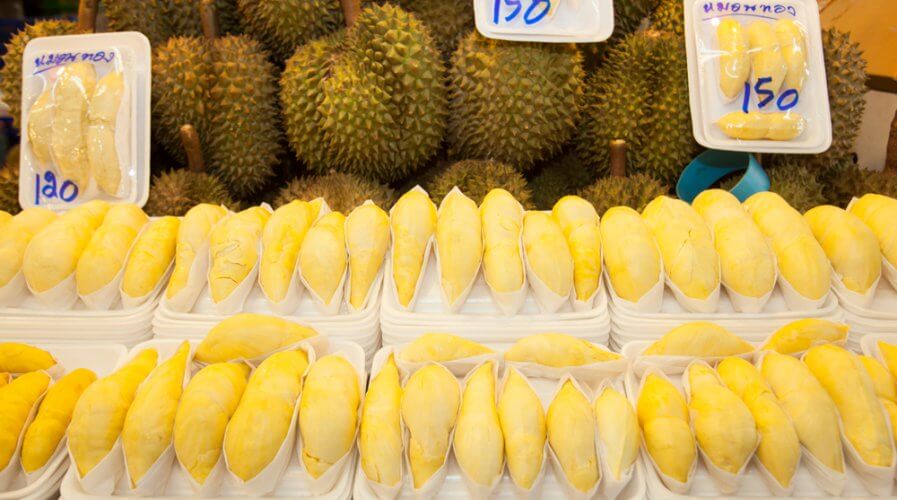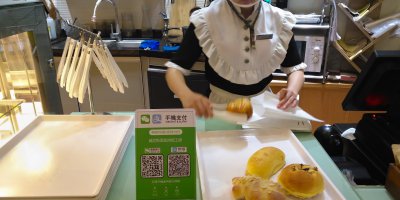
In Malaysia, some errant traders have been found selling “fake” Musang King durians to make a quick profit. Source: Shutterstock
Southeast Asia’s ‘King of Fruits’ will get RFID, QR tags to weed out fakes
WIDELY regarded as the King of Fruits in Southeast Asia, the odorous durian is a highly sought-after delicacy throughout the region, making it a multi-billion dollar commodity with growing demand in big markets like mainland China and Hong Kong.
In Hong Kong alone, durian imports accounted for HKD3.1 billion (US$400 million) in 2016, many of which were bought by Chinese tourists who have acquired an insatiable appetite for the exotic fruit.
Of the 30 known species of the fruit, nine have been identified as edible, and when it comes to choosing from the 500 varieties available in Southeast Asia, the Musang King variety is probably the most popular one among consumers.
In Malaysia, some errant traders have been found selling “fake” Musang King durians to make a quick profit and the government is having none of it. Now authorities are turning tech to help weed out the ripoffs by introducing radio-frequency identification (RFID) to identify and differentiate Musang King durians from other varieties.
According to the New Straits Times (via Bernama), the country’s Agriculture and Agro-based Industry Minister Ahmad Shabery Cheek said Musang King durians would be given a QR code to ensure authenticity.
Every traveller should beware of the unscrupulous durian seller beside the chendol store with a big "durian" sign along Jalan kemus / sempang ampat who sells tasteless "sultan" durians with big seeds at musang King prices and with adjusted scale.
— Samuel Woo (@samwooks) December 6, 2017
Similar to the distribution of swiftlet bird nests where each nest was given its own identification code that indicates its source of production, the RFIDs for the durians would employ the same trace visibility method.
“Accordingly, every Musang King durian, as well as other varieties, will be given QR codes in the future, and the public can scan the code using their mobile phones,”
“In China, the majority of durians come from Thailand, but with QR codes, it is easier to identify the country of origin.
“The QR code is important to ensure durian authenticity,” Ahmad Shabery said in Parliament.
The minister said there were over half a million Musang King trees planted in 23,700ha of land a total of 66,000ha allotted for durian trees nationwide, which saw about 1.5 million durian trees of different varieties being planted, the NST reported.
READ MORE
- Strategies for Democratizing GenAI
- The criticality of endpoint management in cybersecurity and operations
- Ethical AI: The renewed importance of safeguarding data and customer privacy in Generative AI applications
- How Japan balances AI-driven opportunities with cybersecurity needs
- Deploying SASE: Benchmarking your approach




